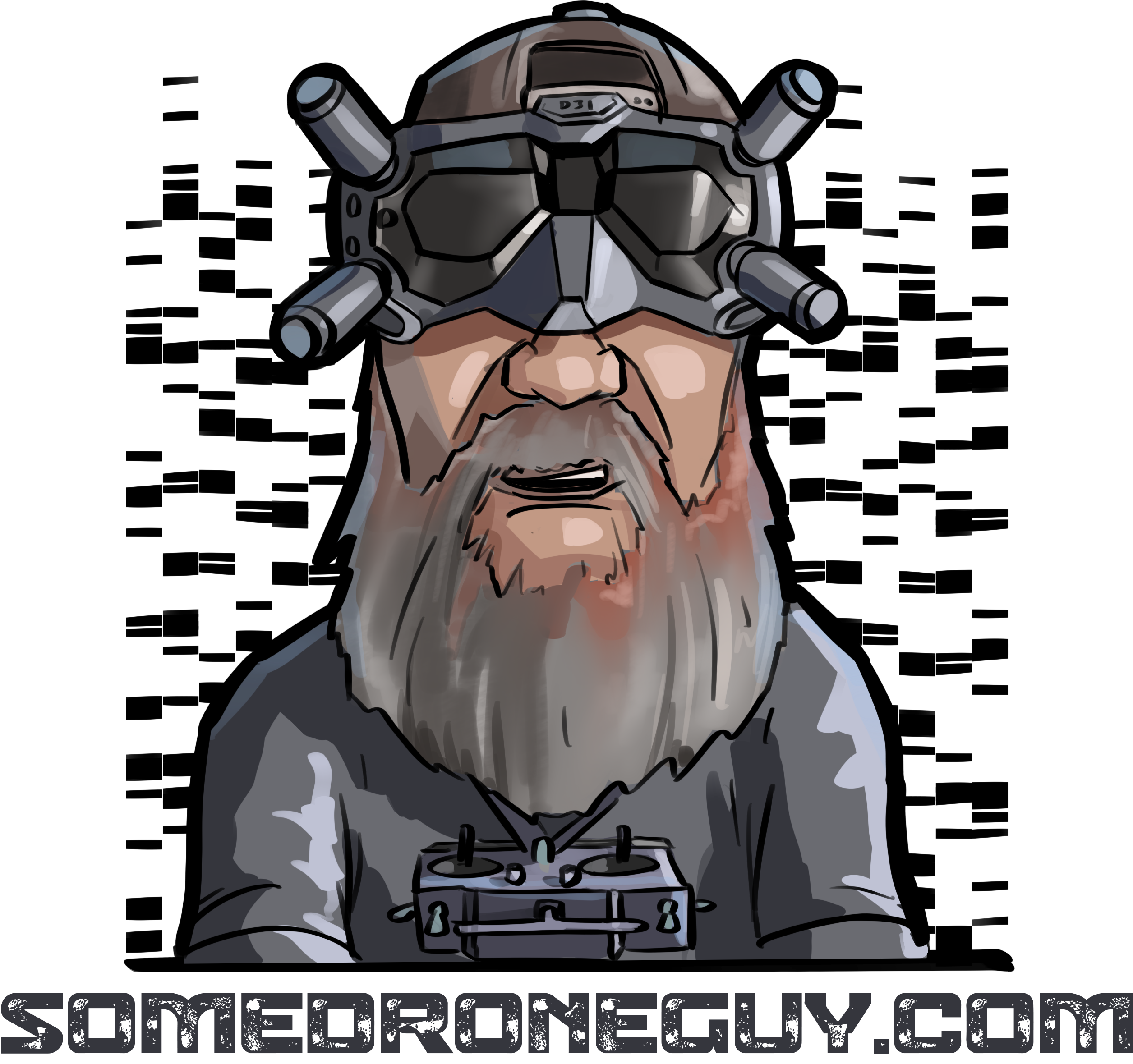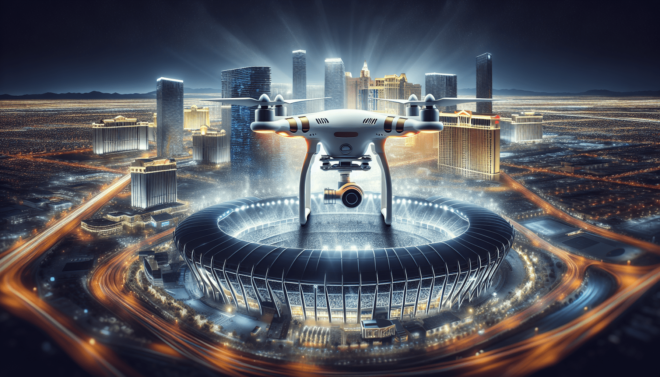Have you ever wondered why drone flying around Las Vegas’ sports arenas is restricted? In today’s world, drones have become increasingly popular for their ability to capture stunning aerial footage, assist in various industries, and even deliver packages. However, not all spaces are created equal when it comes to drone operation, especially around high-profile areas like Las Vegas’ sports arenas.
Understanding the Basics of Drone Regulations
Before diving into the specifics of Las Vegas, it’s essential to grasp some foundational knowledge about drone regulations. Drones, also known as Unmanned Aerial Vehicles (UAVs), have specific rules that govern their operation to ensure safety and privacy.
Federal Regulations
In the United States, the Federal Aviation Administration (FAA) is the primary authority responsible for regulating the use of drones. The FAA’s rules are designed to ensure that drone activities do not interfere with other aircraft or compromise safety.
Key FAA Rules:
- Registration: Any drone weighing more than 0.55 pounds must be registered with the FAA.
- Line of Sight: Drones must be flown within the operator’s line of sight.
- Maximum Altitude: Drones cannot be flown higher than 400 feet above ground level.
- Restrictions Near Airports: Drones must not fly within a certain distance of airports without prior authorization.
These rules establish a framework within which drone pilots must operate. Las Vegas, with its dense air traffic and high-profile venues, often requires additional layers of regulation for drone use.
Specific Concerns Around Sports Arenas
So why are sports arenas, particularly in Las Vegas, restricted zones for drones? There are multiple reasons ranging from safety to privacy and beyond.
Safety Above All
Sports arenas are high-density areas where thousands of people gather to watch games, concerts, and other events. The sheer volume of spectators increases the risk of injury or disturbance if an unauthorized drone were to malfunction or be used maliciously.
Potential Safety Hazards:
- Crowd Control: The large crowds can make emergency response difficult in case of a drone crash.
- Aircraft Interference: Drones could interfere with helicopters and other low-flying aircraft around the arena.
- Structural Risks: Drones could potentially collide with infrastructure, causing damage to both the drone and the facility.
Privacy Concerns
Another significant reason for restricting drone flights around sports arenas is privacy. Sports stars, celebrities, and other VIPs often attend events at these venues, and unauthorized drone footage could invade their privacy.
Privacy Protection Measures:
- Unauthorized Filming: Drones with cameras can capture footage without the consent of those being filmed, leading to potential legal issues.
- Data Security: Unauthorized drones could potentially capture sensitive data from within the arena, including strategic gameplay or proprietary information.
Intellectual Property and Broadcast Rights
Sports events are often protected by intellectual property laws, and unauthorized recording can lead to legal complications. Networks and sports leagues invest heavily in obtaining exclusive broadcast rights, and drones can disrupt these agreements.
Impact on Broadcast Rights:
- Unauthorized Streaming: Drones could stream live footage, violating broadcast rights and potentially leading to financial losses for networks.
- Sponsor Violations: Unauthorized footage could also capture sponsor advertisements, potentially breaching sponsorship agreements.
Local Las Vegas Regulations
In addition to federal rules, local regulations in Las Vegas further restrict drone use around sports arenas. The Las Vegas Metropolitan Area and Clark County have specific ordinances aimed at safeguarding public and event security.
Clark County Ordinances
Clark County has instituted several rules addressing drone usage around high-density areas like sports arenas.
Key Local Regulations:
- Permits Required: Special permits are required to operate drones in high-density areas.
- No-Fly Zones: Specific no-fly zones have been established around sports venues to enhance security.
- Enforcement: Local law enforcement agencies actively monitor drone activity around these restricted areas.
Venue-Specific Restrictions
Individual sports arenas in Las Vegas also impose their own regulations to protect their patrons and property. Let’s look at a few prominent venues and their specific rules.
T-Mobile Arena
- Event Day Restrictions: No drones are allowed to fly within a certain radius on event days.
- Security Measures: Enhanced security protocols are in place to detect and intercept unauthorized drones.
Allegiant Stadium
- Strict No-Fly Zone: This stadium maintains a strict no-fly zone extending beyond the immediate perimeter.
- Crowd Safety Protocols: Additional measures are in place to protect attendees from potential drone hazards.
Technological and Law Enforcement Measures
To enforce these regulations effectively, a combination of technological and human resources is employed.
Drone Detection Systems
Advanced technology helps in identifying and tracking unauthorized drones near restricted zones.
Key Technologies:
- RF Scanners: These devices can detect the radio frequencies emitted by drones.
- Geo-fencing: Digital barriers prevent drones from entering restricted areas based on GPS coordinates.
Law Enforcement Actions
Law enforcement agencies are trained and equipped to handle unauthorized drone activities.
Strategies:
- Confiscation: Unauthorized drones can be confiscated by authorities.
- Fines and Penalties: Operators of unauthorized drones can face fines and other legal consequences.
- Surveillance Teams: Dedicated teams monitor and respond to potential drone threats.
The Role of Sports Organizations
Sports organizations play a vital role in enforcing drone regulations to protect their events and spectators.
Collaboration with Authorities
Sports leagues and event organizers work closely with local and federal authorities to ensure compliance with all regulations.
Joint Efforts:
- Security Planning: Collaborative efforts to develop and implement security plans that include anti-drone measures.
- Communication: Continuous communication channels to report and respond to drone sightings.
Educating the Public
Public awareness campaigns are essential in educating drone enthusiasts about the restrictions around sports arenas.
Outreach Programs:
- Informative Signage: Signs around sports arenas highlighting no-fly zones.
- Digital Campaigns: Social media and online campaigns to disseminate information about drone regulations.
Consequences of Non-Compliance
Ignoring the restrictions around drone flying in sports arenas can lead to severe consequences.
Legal Repercussions
Violating drone regulations can result in significant legal and financial penalties.
Penalties:
- Fines: Operators can be fined substantial sums for unauthorized drone activity.
- Licensing Issues: Repeat offenders may lose their drone operating licenses.
- Civil Lawsuits: Affected parties may file lawsuits against unauthorized drone operators.
Safety Incidents
Safety incidents caused by unauthorized drones can have far-reaching repercussions.
Potential Scenarios:
- Injuries: In the event of a crash, drones can cause serious injuries to attendees.
- Event Disruptions: Unauthorized drones can interrupt events, leading to chaos and potential evacuations.
Best Practices for Drone Enthusiasts
If you’re a drone enthusiast, understanding and adhering to regulations is crucial to ensure the safety of yourself and others.
Know Before You Fly
Always research and understand the specific regulations of the area where you intend to fly your drone.
Preparation Tips:
- Check Local Laws: Familiarize yourself with local regulations and restrictions.
- Obtain Permits: Ensure you have the necessary permits if you plan to fly in restricted areas.
- Monitor Weather: Weather conditions can impact drone flying safety.
Stay Informed
Rules and regulations change, so staying informed is essential for responsible drone operation.
Information Sources:
- FAA Website: Regularly check the FAA website for updates on federal regulations.
- Local Authorities: Contact local authorities to verify any additional restrictions in your area.
- Sports Arena Websites: Visit the websites of sports arenas to understand their specific drone rules.
Conclusion
In conclusion, the restrictions on drone flying around Las Vegas’ sports arenas are in place for several vital reasons. These include ensuring public safety, protecting privacy, safeguarding intellectual property, and preserving the integrity of broadcast rights. By understanding and adhering to these regulations, you can enjoy your drone activities responsibly while contributing to the safety and enjoyment of everyone at these sporting events.
Remember, responsible drone operation not only ensures your legal compliance but also enhances the overall safety and enjoyment of public spaces. Whether you’re a seasoned drone operator or a newcomer, always prioritize safety, respect privacy, and adhere to all regulations to make the skies safer for all.

